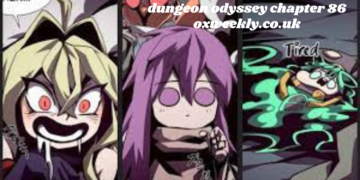The word “pollaste” is not a widely recognized term in mainstream discourse, making it a topic of intrigue. In this article, we will attempt to unravel the mystery behind “pollaste,” investigate its possible meanings, origins, and the potential implications for its use in various contexts. From scientific to social discussions, this article will explore various perspectives and attempt to give a detailed and comprehensive understanding of the term “pollaste” and its significance.
What is Pollaste?
At first glance, the term “pollaste” does not appear to be a part of the conventional lexicon. It is neither found in major dictionaries nor is it a commonly used term in academic or popular discussions. So, what could “pollaste” mean? Without a clear definition, “pollaste” may be interpreted in a variety of ways depending on its intended context.
It’s possible that the term could be a coined word, a regional dialect, or perhaps even a typo for something more familiar, such as “pollution” or “palate.” However, with no definitive origin, the term remains an enigma.
One potential explanation is that “pollaste” could be an invented term, perhaps born out of online conversations, social media, or niche groups. As with many contemporary words that emerge from digital communities, “pollaste” might have evolved in response to certain cultural or technological trends.
The Linguistic Enigma of Pollaste
Language is a living, evolving organism, and new words regularly enter the lexicon. While the term “pollaste” has not been officially recognized or widely accepted, it might follow a similar pattern as other neologisms (newly coined words). In fact, the creation of words often reflects cultural, social, or technological shifts.
For example, in the age of digital communication, many phrases and words have emerged from the need to express new experiences or ideas. Words like “selfie,” “meme,” and “hashtag” were once foreign concepts, but over time they gained acceptance.
Could “pollaste” be a term in its early stages of development? Its usage might be localized or specific to certain groups, communities, or online platforms. If so, it could eventually find its place in a broader linguistic context.
Pollaste in the Context of Science or Technology
The term “pollaste” might also have potential scientific or technological connotations. In the field of technology, words often emerge to describe new concepts or inventions that did not exist previously. Similarly, in scientific fields, terms like “genomics” or “nanotechnology” were once unfamiliar but have since become integral to conversations about biology, medicine, and engineering.
In the absence of concrete information, we can explore the possibility that “pollaste” could be an emerging term related to a new discovery or innovation. It could potentially be a jargon term used in a niche field, one that has yet to gain widespread recognition. The rapid pace of technological advancement means that new terms are often coined to capture novel concepts or developments.
Social and Cultural Interpretations of Pollaste
Culture plays a significant role in shaping language, and it’s possible that “pollaste” might have a more cultural or social origin. Certain subcultures or online communities often create words to express unique experiences, values, or beliefs. These words can later spill over into mainstream usage, much like how internet slang or meme culture has influenced common speech.
For instance, terms like “FOMO” (fear of missing out) or “TL;DR” (too long; didn’t read) originated in digital spaces but have since entered everyday conversations. Similarly, “pollaste” could represent an idea or concept that resonates with specific groups, even if its meaning is still in flux.
The cultural significance of words like “pollaste” cannot be underestimated. They often serve as expressions of identity, signaling belonging to a particular group or way of thinking. As language evolves, so too does the cultural landscape that supports it.
Pollaste and Environmental Implications
Another angle worth exploring is the environmental context of the word “pollaste.” Given the proximity of the word to “pollution,” it is possible that “pollaste” could have an environmental or ecological association. The ongoing challenges of climate change, environmental degradation, and pollution have led to the development of numerous terms aimed at raising awareness and describing these issues.
If “pollaste” is related to the environment, it could represent a novel concept in environmental science, policy, or activism. It might refer to a specific type of pollution, an innovative approach to sustainability, or even a new form of ecological awareness. The connection between language and environmental consciousness is profound, as the words we use often shape the way we understand and address environmental challenges.
If “pollaste” is tied to environmentalism, its adoption and widespread use could help mobilize efforts to address pressing ecological issues. The power of language to influence social change is undeniable, and the emergence of terms like “pollaste” could be part of a larger movement towards environmental awareness and action.
Speculations and Possibilities: Could Pollaste Be a Trend?
Sometimes, words that start out as obscure or niche terms can grow into widespread trends. The rise of new trends in fashion, music, technology, and art is often accompanied by a new vocabulary. Words like “vibe,” “lit,” and “woke” have entered the mainstream from specific cultural movements and have grown to symbolize broader societal shifts.
Could “pollaste” be the next trend? It is conceivable that this term could find traction as part of a larger cultural phenomenon. Whether it takes on a political, environmental, or social meaning, “pollaste” could be one of many words that reflects a defining moment in time. Just as new forms of expression arise from subcultures, “pollaste” might take root in the public consciousness if it taps into a larger social need or desire.
The Future of Pollaste
As with any new word or concept, the future of “pollaste” depends largely on its adoption and widespread usage. The process by which words gain meaning and relevance is complex, involving everything from social media trends to academic discussions. Whether “pollaste” will become a term of lasting significance or fade into obscurity remains to be seen.
If the term “pollaste” gains traction in any particular area—be it scientific, environmental, or cultural—it could take on an entirely new life. Language is dynamic, and the words we use today often become symbols of tomorrow’s ideas.
In conclusion, while “pollaste” is not yet a recognized term, it holds intriguing possibilities. Whether it emerges from digital spaces, cultural movements, or scientific breakthroughs, its potential meanings and implications are vast. As we continue to explore the world around us, we may find that “pollaste” becomes part of the lexicon, enriching our understanding of modern life.
Through continued dialogue and exploration, we may eventually uncover the full significance of “pollaste,” giving it a place in both our language and our understanding of the world. Its journey from an unknown term to a concept with real-world relevance could serve as a testament to the ever-evolving nature of language itself.
In conclusion, the mystery behind “pollaste” offers a fascinating journey into the realms of language, culture, and society. It stands as a reminder of how new terms can emerge from the digital and social landscape, potentially shaping the way we think about and engage with the world around us

































